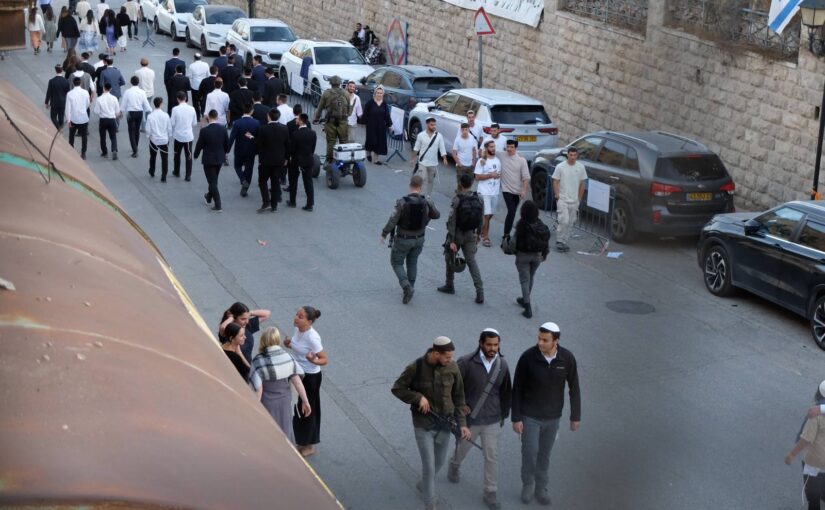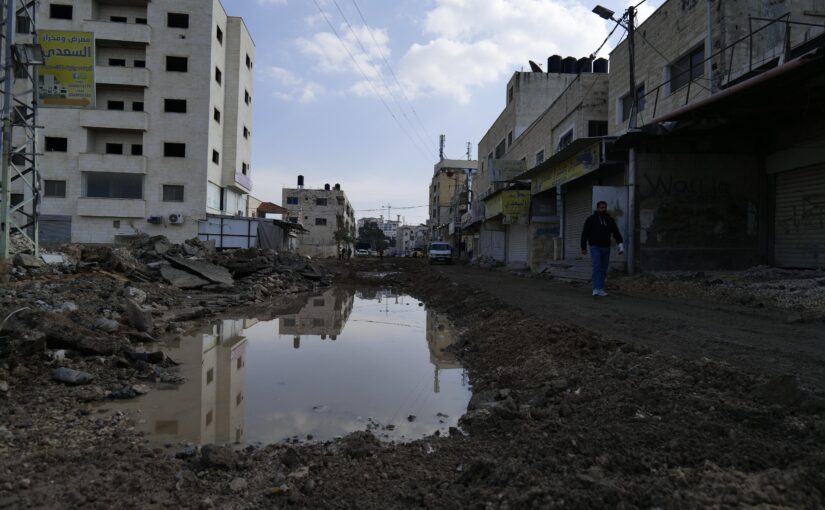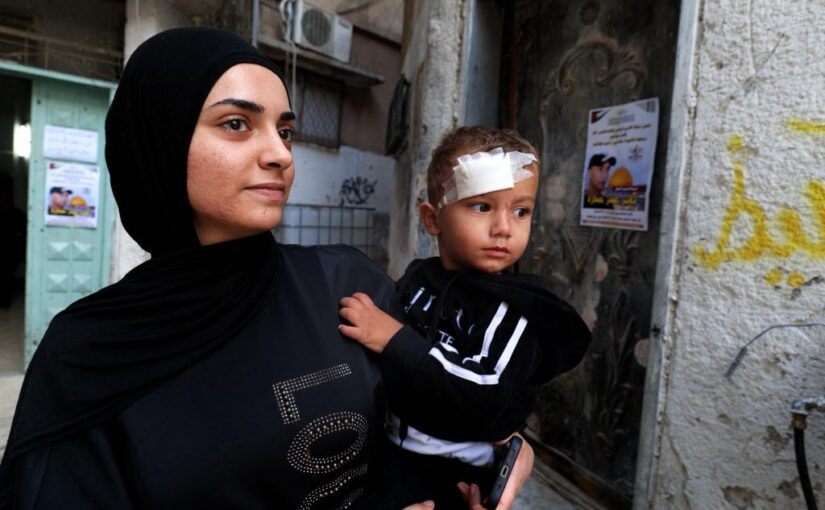-

Settler Harassment During “Shabbat Chayei Sarah” in Al-Khalil
November 21/ 22 – Al-Khalil Music, songs, dancing, prayers and alcohol. This could chracterize a common religious festival anywhere – were it not being used as an excuse for Israeli settlers to attack and raid the Palestinian community, which is already living under segregation since 1997, in the city known as al-Khalil for the Palestinians and […]
-

Jenin: The most destroyed city
Jenin, West Bank | November 21, 2024 | By Diana Kwaelid When will Israel stop destroying cities and camps in the northern West Bank? The Jenin area has turned from an active city full of life and economy, into a destroyed zone where you can see wreckage in the town, and especially in the camp, […]
-

A Child Witnessed His Father’s Murder
West Bank—Tulkarm By Diana Khwaelid When will Israel stop spilling Palestinian blood in the West Bank? On November 13, Wednesday evening, an Israeli special force called Al-Yamam, accompanied by Israeli occupation soldiers, assassinated and killed two Palestinian youths during the siege of a house in the Ezbet Jarad area of Tulkarm. At about 6:15 pm […]
Action Alert An Nabi Saleh Apartheid Wall Arrests BDS Bethlehem Bil'in Cast Lead Demonstration Denial of Entry Ethnic Cleansing Farmers Gaza Global Actions Hebron House Demolition International law Israeli Army Jerusalem Live Ammunition Nablus Ni'lin Prisoner Ramallah Rubber-coated steel bullets Settlement Settlers Settler violence Tear-Gas Canister Video
